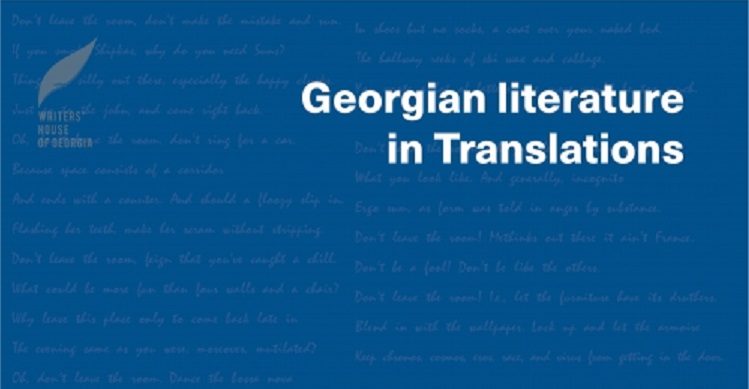Georgian literature in your language - translations 2014
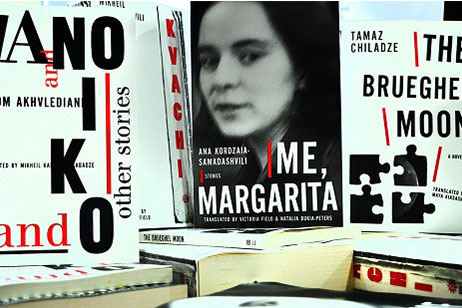

People all around the globe who love literature now have a possibility to add Georgian pieces of writings to their reading lists.
Georgian National Book Centre (GNBC) with the Ministry of Culture give them a chance to read eleven pieces of Georgian literature translated in their native languages: English, German, French, Italian, Swedish, Hungarian, Dutch, Russian, Ukrainian, Arabian, Turkish and Macedonian.
In 2013 Georgian National Book Centre translated 13 contemporary books of Georgian authors into three European languages. Three well-known poems by famous Georgian author Vaja Pshavela have also been translated and published in English, French and German.
Georgia’s Ministry of Culture funded an initiative to translate the books into additional languages at the beginning of the year 2014, while publishers of the novels provided the Georgian books to be exported to foreign markets and managed meetings with authors and readers, said a Ministry representative.
A number of translations and publications of Georgian and Foreign authors have been financed within the framework of the GNBC and the Ministry of Culture and Monument Protection of Georgia.
Press office of the Ministry of Culture emphasized that the translation initiative fell under the "Book and Literature Promoting Program".
Check out if the book on your language is available in the list of 2014
 Dagny or a Love Feast by Zurab Karumidze published in Turkish
Dagny or a Love Feast by Zurab Karumidze published in Turkish
The novel was already published in the United States at the beginning of 2014. As the title suggests, two contrasting stories unfold in this novel: One is of the Norwegian poetess and dramatist Dagny Juel (1867-1901) - a beautiful, artistic, creative woman, whose errant life brings her to a totally foreign country where she dies falling victim to deranged male fantasies. The other story is a bizarre mixture of religious mysticism and eroticism, mythic origins of arts and politics. This mix of themes and ideas is rendered in a story of a so-called Agape - the Love Feast - a half-religious half-artistic event. The place where the Love Feast interacts with reality is a city of limitless feasting and wine-crazed discussion - Tbilisi.
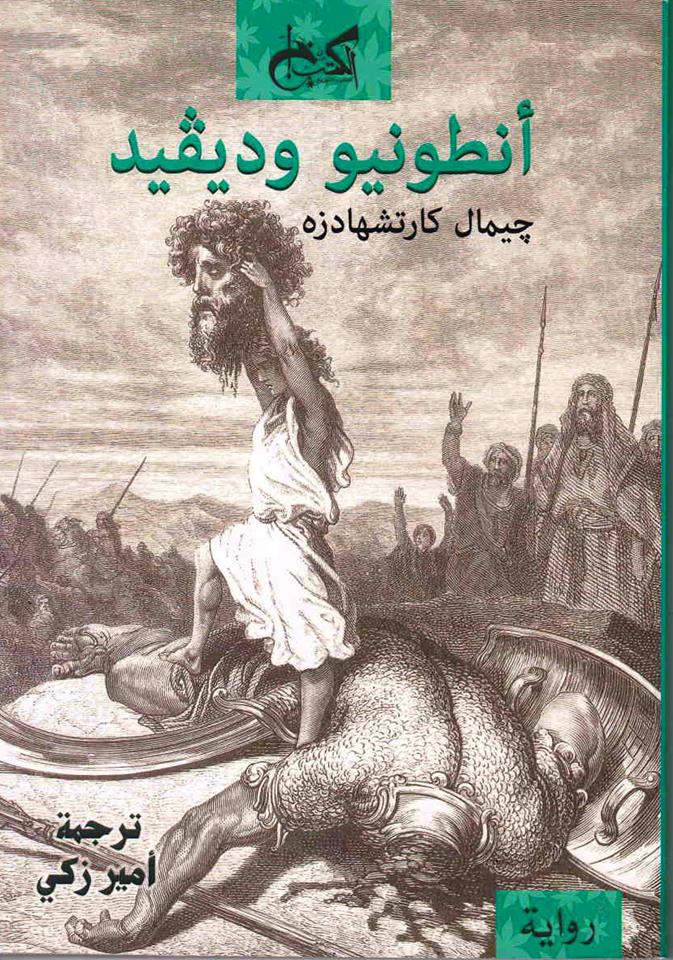 Antonio and David by Jemal Karchkhadze, published in Arabian
Antonio and David by Jemal Karchkhadze, published in Arabian
Sometime around 1600AD, young peddler Bartolomeo d'Aniti is called to court in the Italian city where he lives. He is ordered to accompany a delegation to the distant land of Georgia, they called it as Colchis. On the voyage to Georgia he gets to know Antonio, a former priest who was accused of devil worship. They become good friends but the friendship with the fallen priest will soon draw Bartolomeo in a web of intrigue in the foreign country. Against a backdrop of snow-capped mountains and lush valleys, dense forests and the black sea, a story of slave traders, bandits, bounty hunters, noble princes, priests and false counts unfold to develop the story into a thrilling chamber play about possibilities and limitations.
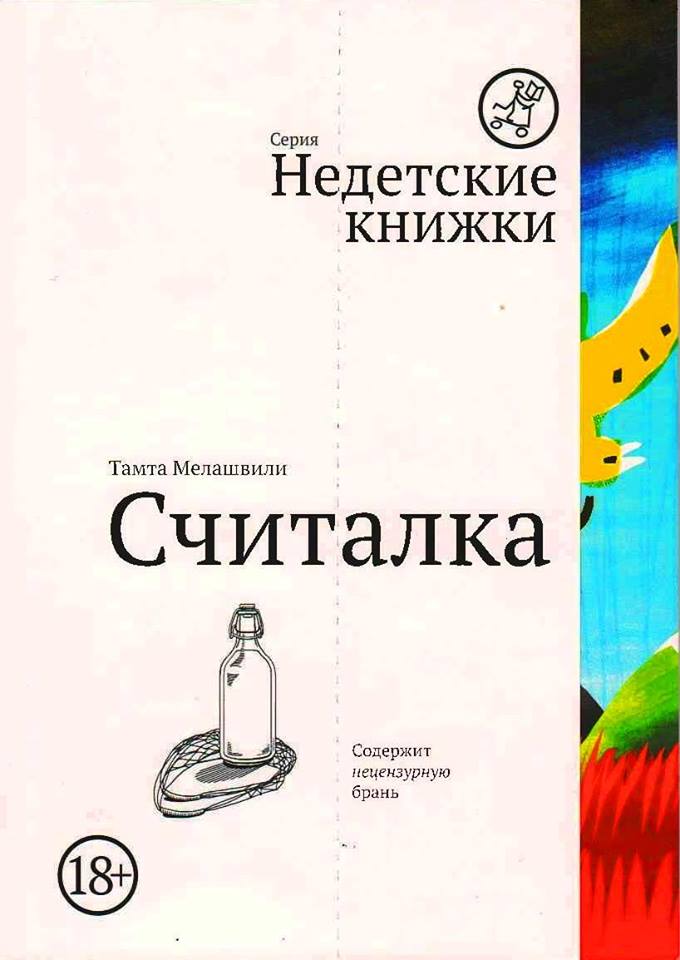
Counting out by Tamta Melashvili published in Russian
Counting out is Tamta Melashvili’s first book published in 2010. It is a novel about tragic story of two teenage girls, who live in a provincial town located within a conflict zone. There is no date or any geographical names mentioned in the story. To be survived heroes are involved in drug trafficking for food. They share all the troubles of adults.
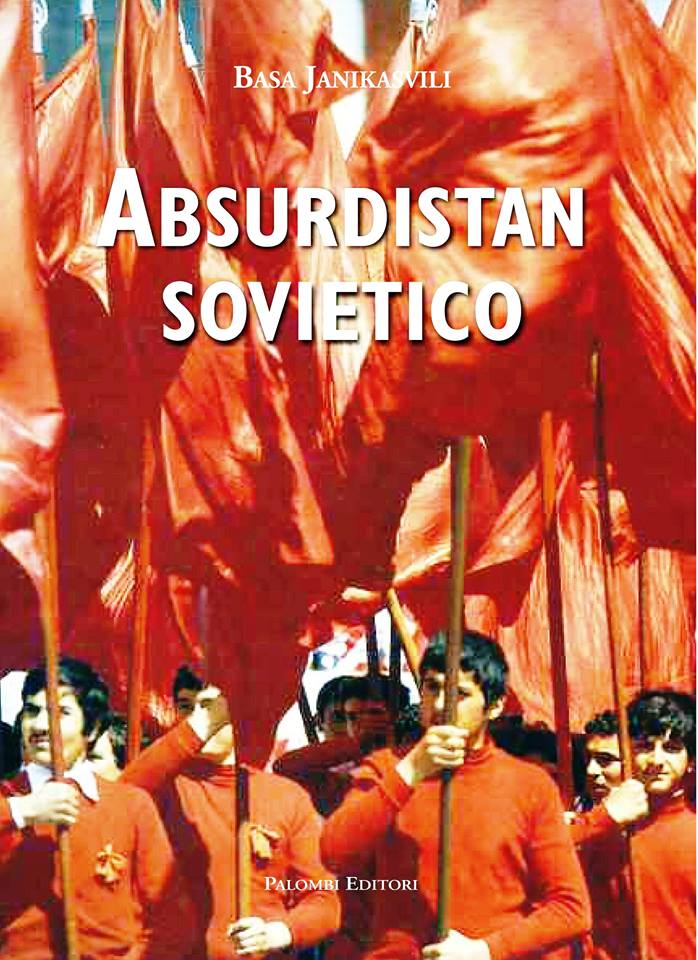 Absurdistan by Basa Janikashvili published in Italian
Absurdistan by Basa Janikashvili published in Italian
Absurdistan is a country where everything looks absurd: music, entertainment and even life; here the word "freedom" is not appreciated. Since the 1960s the Western world has familiarized itself with rock music, one of the most obvious manifestoes of freedom in the 20th century. This was the western "disease" that Soviet Absurdistan feared most, because it had a huge influence on individuals. The main theme of the book is Rock Music. The author follows the story of Rock in Soviet Georgia during the 1980s and 1990s. At that time the music was imported illegally through pirate radio stations. It was associated with freedom, which meant much more then music of young generation. The author describes this absurd world, where music was heavily censored and tightly controlled by the state.
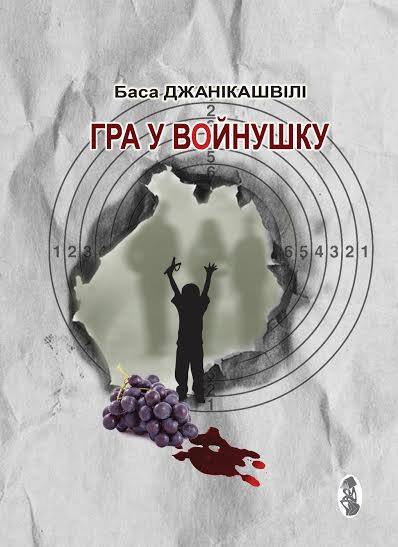 Shoot’em up by Basa Janikashvili published in Ukrainian
Shoot’em up by Basa Janikashvili published in Ukrainian
A new novel is about the Russian-Georgian War on August 2008. As the war starts, one family's summer holiday destination becomes the front-line. Husband and wife, Guram and Vera, conduct their own war. A pebble, thrown by their son, hits and downs a Russian fighter plane. The captured pilots are to be shot dead. However, before the death penalty is to be carried out, the Georgians astonish the Russian pilots with their hospitality and warm reception.
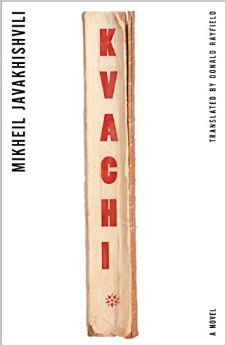 Kvachi by Mikheil Javakhishvili published in English
Kvachi by Mikheil Javakhishvili published in English
Georgian mocking Don Quixote, named Kvachi Kvachantiradze is a man associated with womanizer, cheat, perpetrator of insurance fraud, bank-robber, associate of Rasputin, filmmaker, revolutionary, and pimp. Though originally denounced as pornographic, Kvachi's tale is one of the great classics of twentieth-century Georgian literature and a hilarious romp to boot.
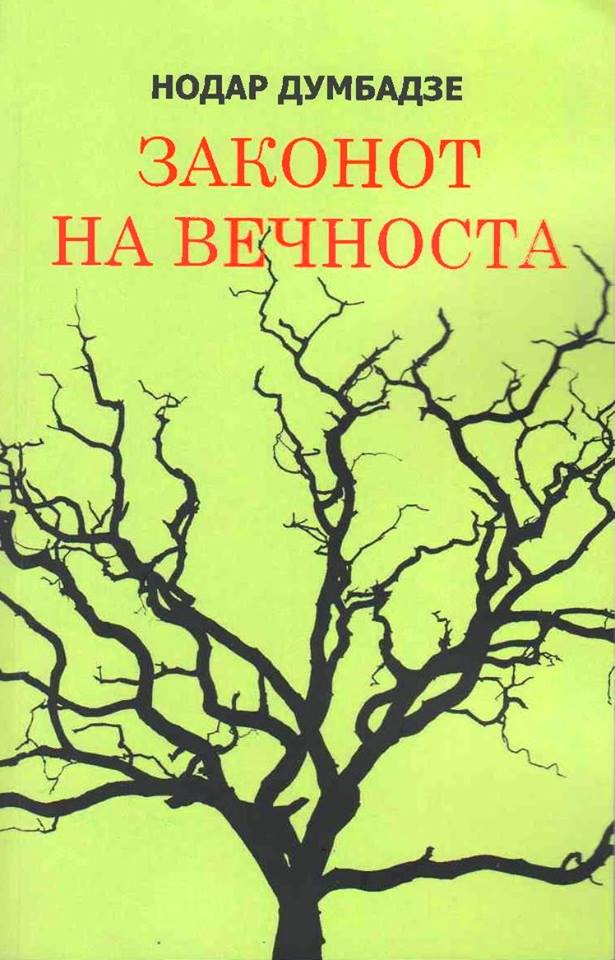 The Law of Eternity by Nodar Dumbadze (1928-1984) published in Macedonian
The Law of Eternity by Nodar Dumbadze (1928-1984) published in Macedonian
The Law of Eternity was final novel of the author. In this work, a gravely ill hospital patient faces the concept of the struggle between good and evil. In 1982, Georgian film director Valerian Kvatchadze released the screen adaptation of the book.
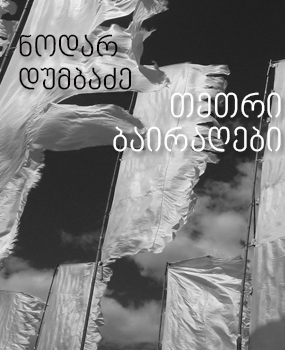 White Flags by Nodar Dumbadze (1928-1984) published in Macedonian
White Flags by Nodar Dumbadze (1928-1984) published in Macedonian
White Flags is one of the most famous works of Nodar Dumbadze. It follows the fate of someone unjustly convicted of a murder he did not commit. Many of the characters are criminals, whom Dumbadze portrays as struggling with their relationship to society but also with their understanding of themselves.
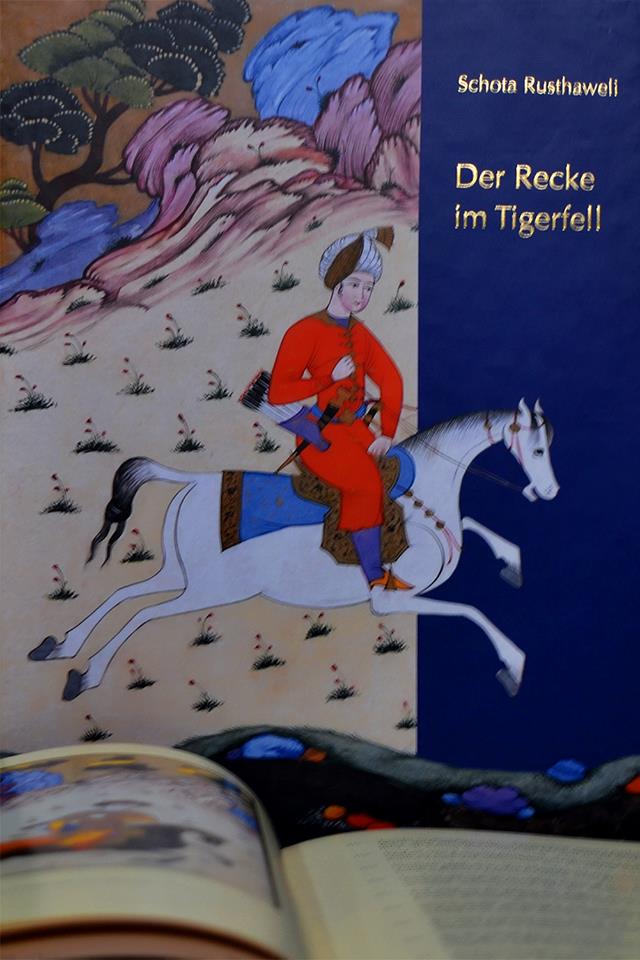 The Knight in the Panther’s Skin by Shota Rustaveli published in German
The Knight in the Panther’s Skin by Shota Rustaveli published in German
Georgian medieval epic poem ‘The Knight in the Panther’s Skin written in the 12th century by the Georgian epic poet Shota Rustaveli is considered to be the "masterpiece of the Georgian literature" which held for centuries a prominent place in the heart of Georgians.
The story takes place in India and Arabia and tells the friendship between the two heroes, Avtandil and Tariel, and the quest to find the object of love, Nestan-Darejan. Dedicated to Queen Tamar of Georgia who is a model for Nestan-Darejan, the work boasts the size and glory of the Kingdom of Georgia in its golden age. These idealised heroes, the devoted friends are united by courtly love, generosity, sincerity, dedication, who proclaims equality between men and women, with great joy. The poem is regarded as the ‘coronation of thought, poetic and philosophical art of medieval Georgia’ a complex work with rich and transcending genres.
In Georgia until the early 20th century, a copy of this poem was part of the dowry of any bride.
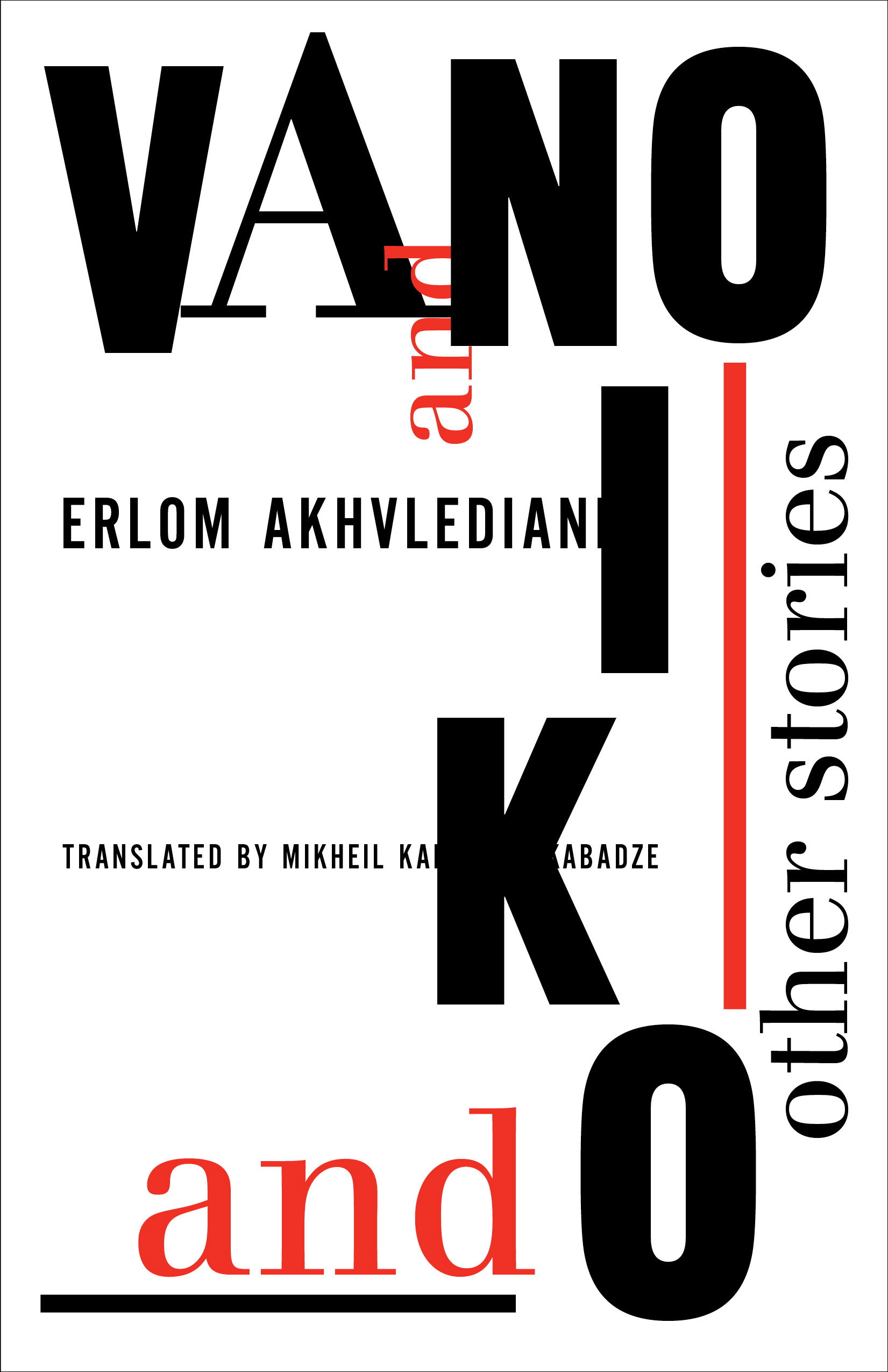 Vano and Niko by Erlom Akhvlediani published in English
Vano and Niko by Erlom Akhvlediani published in English
Vano and Niko resemble a catalogue of all the relationships that are possible between people. It is a parable that demonstrates that not only humans but all living beings are engaged in the search for the other. Vano and Niko was one of Akhvlediani's earlier works, written in the 1950s. It is a parable that demonstrates that not only humans but all living beings are engaged in the search for the other. Peter Handke, who met Erlom Akhvlediani in 1975, described the parables as exhilarating and at the same time paradoxical. The book was published in the United States and the United Kingdom.
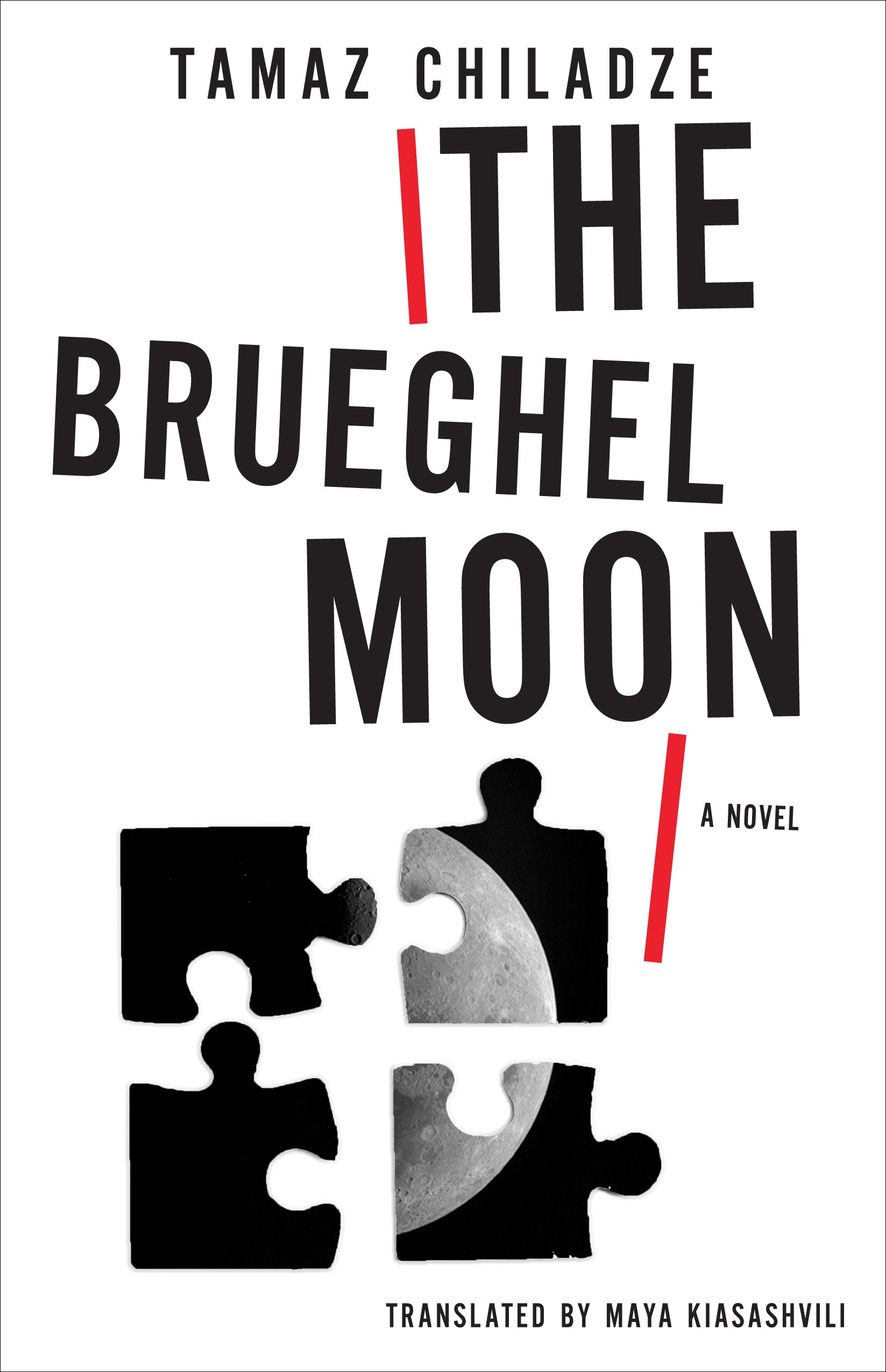 The Brueghel Moon by Tamaz Chiladze published in English
The Brueghel Moon by Tamaz Chiladze published in English
The novel of the famous Georgian writer, poet and playwright Tamaz Chiladze focuses on moral problems, arisen as a result of too great a self-assuredness of psychologists. Its main character is an up-to-now successful psychotherapist, whose wife has left him.
The Brueghel Moon begins with narrator Levan returning from a game of tennis to find his wife, Ia, in the process of moving out -- an abrupt start, coming nearly as out of nowhere for Levan as for the reader. The time for discussion seems past, and Levan does not manage to do or say much to try to dissuade her. Suddenly, his wife and young daughter, Tamriko, are entirely removed from his life, and he is on his own. The book was published in the United States and the United Kingdom.
 Tweet
Tweet  Share
Share

